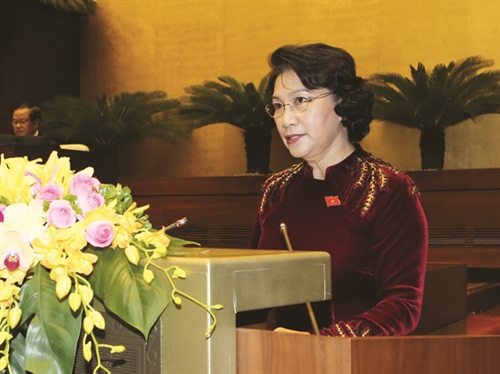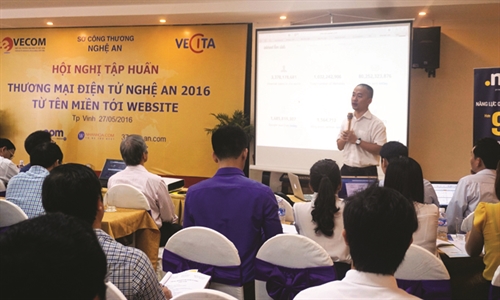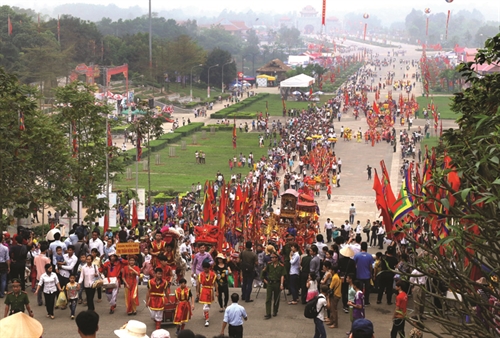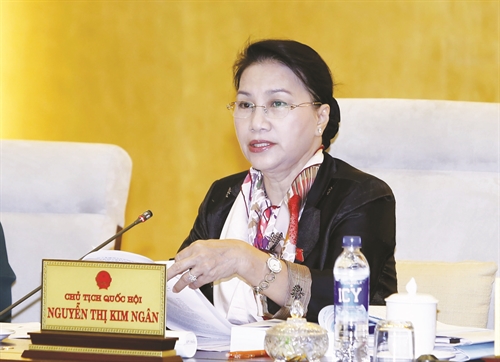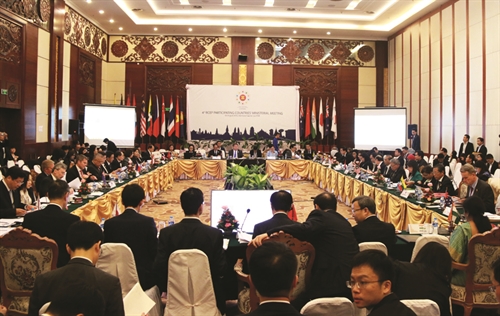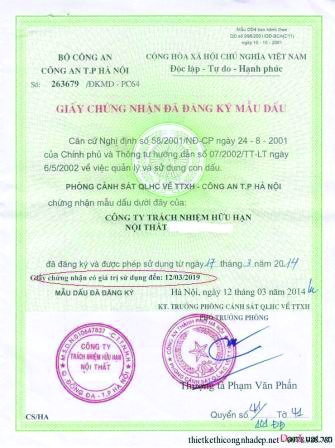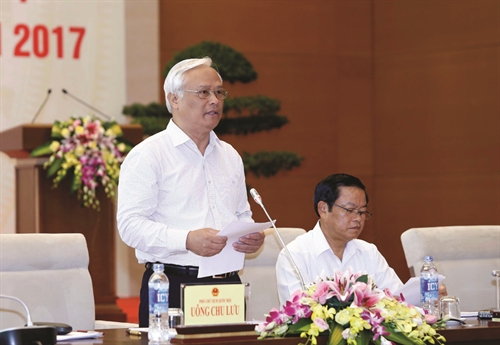Nguyen Hong Hai
Deputy General Director
Department of Civil-Economic Laws, Ministry of Justice
1. Overview of the 2015 Civil Code
The 2015 Civil Code (the Code) was passed by the 13th National Assembly at its 10th session on November 24, 2015, and was promulgated by the President on December 8, the same year. It will come into force on January 1, 2017.[1]
The Code is composed of 689 articles arranged in six parts and 27 chapters. Compared to the 2005 Civil Code, it keeps 81 articles unchanged, revises 573 articles, removes 123 others and adds 70 new ones. Structurally, the Code is influenced by the Pandectist System, which is adopted by many countries, including Germany, Japan, Switzerland, Portugal, the Republic of Korea, Thailand, and so on, in designing their civil codes.[2] However, Vietnam’s Civil Code is different from these foreign civil codes in that it does not have a part of family relations as the country has a separate law on marriage and family.[3]
The Code was promulgated at a time when Vietnam has undergone 30 years of comprehensive social and economic renewal. There have emerged many new requirements to be fulfilled and new thoughts to be realized so as to ensure sustainable development, guarantee civil rights of people and businesses, and build a stable, transparent, feasible and internationally integrated legal system. Hence, along with inheriting fine traditions of the Vietnamese civil legislation[4], the Code has adopted many new approaches, reflecting a reform in legal thinking and legal mechanisms regulating civil relations in three major areas:
(i) Ensuring the position and role of the Civil Code as a general law and legal foundation of the system of laws regulating civil relations, thus creating consistency, synchronicity and stability of Vietnam’s private law system;
(ii) Ensuring a more humane and feasible legal foundation for the recognition, enforcement and protection of human rights and citizens’ rights in the civil sphere;
(iii) Ensuring that the Civil Code is the law of market relations, thus forming a more stable, transparent, feasible, secure and internationally integrated legal framework governing property-, ownership- and transaction-related issues.
2. Major new contents of the Code
Firstly, the Code lays a stable and consistent legal foundation to regulate civil relations, minimizing the administrationalization and criminalization of, as well as intervention by public authorities into, civil relations, as follows:
(i) The Code articulates that laws regulating civil relations must ensure all individuals and legal persons are equal, not discriminated against for any reasons, and equally protected by law with respect to moral and property rights.[5] Individuals and legal persons may freely and voluntarily undertake or agree to the establishment, performance and termination of civil rights and obligations on condition that they show goodwill, honesty, and respect for national and public interests as well as lawful rights and interests of others and assume civil responsibility by themselves. In case a relevant law violates these principles, the Code will prevail.[6]
In order to ensure transparency in the respect for the free will of civil subjects, preventing public authorities from abusing the law to declare civil commitments or agreements null and void, the Code does not provide “compliance with law” as a basic principle of civil law but specifies cases in which subjects will have their civil rights restricted or are required to abide by relevant legal institutions.[7]
(ii) The Code goes on to stipulate that civil rights of individuals and legal persons may only be restricted in accordance with law in necessary cases for the reasons of national defense or security, social order and safety, social morality or community well-being. Individuals and legal persons may exercise their civil rights at their own will but their non-exercise does not form a basis for termination of such rights, unless otherwise provided for by law[8].
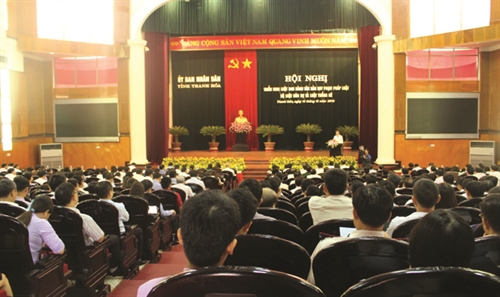 |
| Conference to disseminate the Civil Code, Law on Laws and Law on Statistics among leading officials of Thanh Hoa province on October 14 __Photo: Khieu Tu/VNA |
Secondly, the Code creates a more complete and specific legal mechanism to defend civil rights through competent authorities. As per the Code, civil rights which are infringed upon or involved in disputes will be protected in accordance with procedure law at court or arbitration; the protection according to administrative procedures will be enforced only in case such is provided by a law. Civil cases settled according to administrative procedures may be reconsidered by the court which is vested with the power to cancel unlawful decisions of competent agencies, organizations or persons. In the resolution of civil cases and matters, the court may apply provisions of statutes of limitations only when such is requested by one or all of the involved parties.[9]
Particularly, in order to promote the role of the court in the protection of justice, human rights, citizens’ rights and lawful rights and interests of individuals and legal persons in civil transactions, the Code states that the court must not decline to settle civil cases and matters citing the reason of unavailability of applicable laws. In order to facilitate the court’s fulfillment of its duties, the Code and the 2015 Civil Procedure Code, which came into force on July 1, 2016, further stipulate that in addition to applying legal practices and analogies, the court may refer to fundamental principles of civil law, court precedents and justice to settle civil cases and matters when applicable laws are unavailable or unclear.[10]
Thirdly, the Code introduces a more favorable, humane and feasible legal mechanism for individuals, including foreigners, and legal persons to enter into civil relations in a way that ensure equality between people in disadvantageous positions and other subjects in terms of legal status and civil rights and obligations:
(i) To this end, the Code stipulates that an individual’s civil legal capacity cannot be restricted, unless otherwise provided for by the Code or other relevant laws. Rights of stateless persons residing and living in Vietnam are guaranteed by the law. Foreigners have the civil legal capacity like Vietnamese citizens unless otherwise provided for by law. In case foreigners establish or carry out civil transactions in Vietnam, their civil act capacity will be determined in accordance with Vietnamese law. The determination of whether a person has lost his civil act capacity, encountered cognitive impairment or behavioral disturbances or has his civil act capacity restricted in Vietnam must comply with Vietnamese law.[11]
(ii) The Code also affirms that all individuals and legal persons are allowed to establish legal persons unless otherwise provided for by law. Legal persons established under Vietnamese law are Vietnamese legal persons. The Civil legal capacity of legal persons will not be restricted unless otherwise provided for by this Code and other relevant laws[12].
(iii) It does not only concretize moral rights of individuals over their images, the right to live, right to have their life, health and body secured, right to have their honor, dignity and prestige protected, right to gender reassignment, and rights to privacy, personal secrets and family secrets, but also creates mechanisms for recognizing, respecting, exercising and protecting these rights. Prominently, to respect and protect human rights and citizens’ rights of transgender persons like other persons before law without discrimination, the Code states: “Gender reassignment must comply with law. Transgender persons have the right and obligation to register the change of their civil status under the law on civil status, and have moral rights based on their reassigned gender as stipulated in this Code and relevant laws.” This is a concrete action taken by Vietnam in implementing the Resolution on human rights, sexual orientation and gender identity adopted in September 2014 by the United Nations’ Human Rights Council.[13]
(iv) The Code adds a regime of legal aid for persons with cognitive impairment or behavioral disturbances (i.e., adults who, due to physical or mental problems, are incapable of cognizing or controlling their acts but have not yet lost their civil act capacity). Accordingly, these persons are entitled to guardianship and assisted by guardians appointed by the court in accessing and exercising their civil or procedural rights.[14]
(v) The Code requires the appointment of a guardian to respect and satisfy the ward’s will and aspiration for guardianship. Specifically, a person with full civil act capacity may choose an individual or a legal person as his guardian. To provide guardianship for a person with cognitive impairment or behavioral disturbances, the consent of this person is required if he is capable of expressing his will at the time of the request for guardianship. Meanwhile, the appointment of a guardian for a child aged full six years or older must take into account the child’s aspiration.[15]
Fourthly, the Code provides a better legal framework on matters related to property, ownership and transactions with a view to improving Vietnam’s economic institutions and developing the market in a sound, rational and safe manner to be ready for integration, as follows:
(i) It states that property in civil transactions includes immovable property and moveable property, which may be existing property or future property. The Code regards land use rights as property rights of land users. In the relationship with land under ownership by the entire people, land users are defined as subjects having the right of superficies based on land use purpose, land tenure and land quota prescribed in the Land Law. When required by law, property must be registered and such registration must be made public.[16]
(ii) To maintain peace in property relations as well as preserve social order and safety, the Code defines possession as an actual state between the possessor and such property, which is independent of ownership rights and other rights over the property. Under the Code, the property possessor is presumed to be bona fide and, anyone who reckons that the possessor is mala fide must give a proof. In case there is a dispute over property rights, the property possessor will be presumed to have such rights, while the person involved in the dispute must prove that the possessor does not have property rights. The bona fide possessor of a property in a continuous and public manner is entitled to the application of the statute of limitations for enjoying rights over as well as fruits and yields from the property as provided by this Code and relevant laws.[17]
(iii) The Code has amended the provisions on easement, usufruct and the right of superficies in order to ensure that a property in civil transactions is circulated continuously in various forms and on different scales and has its value maximized not only by its owner but also by other subjects, thus bringing more benefits to the subjects concerned, the economy and the entire society. The subjects having these rights may perform all acts within the ambit of their rights provided in the Civil Code and relevant laws without harming or affecting national interests, public interests or lawful rights and interests of property owners or other persons. If ownership rights are transferred, their effect will not be changed or terminated, unless otherwise provided for by law.[18]
(iv) Concerning the transfer of property rights, the Code clearly distinguishes the effective time of a transfer transaction, the time of transfer of rights, and the time the transfer publicly takes effect for a third party. A bona fide third party in a null and void civil transaction will be protected in case the property has been registered at a competent state agency and, if this party has established and performed a transaction based on such registration, such transaction will not be considered null and void. As regards security for performance of obligations, the Code says that a security measure will take counter effect for a third party from the date it is registered or the securee holds or seizes the security property and, when this measure takes counter effect, the securee is entitled to reclaim the security property and receive payments under the Civil Code and relevant laws.[19]
(v) To guarantee justice and concretize the principle of good will in civil relations, the Code establishes civil liability in a manner that the breaker of an obligation will be presumed to be at fault while the victim will be responsible for taking necessary and reasonable measures to minimize the damage caused to him. In case the property causes damage, its owner or possessor will be held liable to pay compensation, unless such damage is caused by a force majeure event or entirely due to the victim’s fault.[20]
(vi) With a view to ensuring the conformity with international practices and creating a transparent and secure legal environment for foreign parties in civil and commercial relations with the State and competent bodies of Vietnam, the Code stipulates that in civil relations, the State of the Socialist Republic of Vietnam as well as central and local authorities are equal to other entities and must bear civil liability in accordance with the Civil Code.[21]
Besides, the Code endorses the mechanisms of flexibility in the settlement of civil relations involving foreign elements on the basis of selectively accepting the internationally recognized principles of identifying applicable laws (including a mechanism allowing subjects in civil relations involving foreign elements to select applicable laws) among the connecting factors, and the order of priority for application of these laws, especially for contractual relations and extra-contractual compensation.[22]-
(1) Pandekten (Pandectist system): A civil code is structured into parts and chapters along the direction of theoretical generalization. Accordingly, a civil code is structured into parts, including (1) General Provisions, (2) Jus in Re, (3) Obligations, (4) Family, and (5) Inheritance;
(2) Institutiones (Institutional system): A civil code is structured based on function of law into parts and chapters, namely personae - the subject, res - the object and actiones - activities. Countries like France, Austria, Egypt, etc. adopted their civil codes embracing this system, which was also used in the 1931 Bo Dan Luat Bac Ky, the 1936 Bo Dan Luat Trung Ky, and the 1972 Civil Code of South Vietnam.
